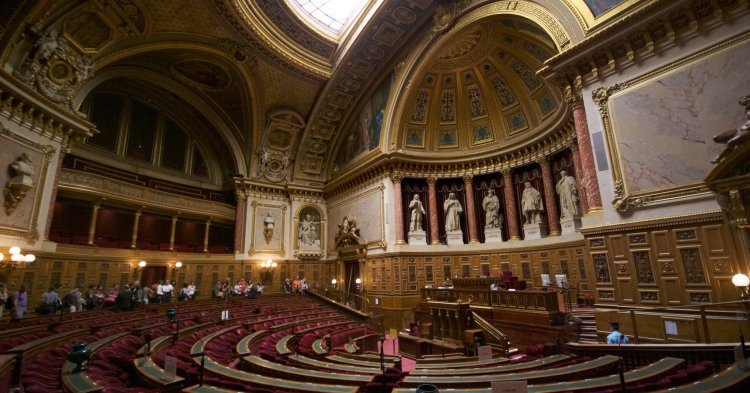France has recently hit the front pages of newspapers across the world, but for reasons that are unexpected from such a liberal country. Under the leadership of President Emmanuel Macron, France has recently taken various steps to undermine human rights — something which has gradually spoiled the country’s image as the torchbearer of liberty and the defender of freedom of expression. The latest among these human rights blunders is a proposed amendment to French security law and the dissolution of a non-governmental human rights organization.
The dissolution of an important human rights organization
On December 2, the French government dissolved the ‘Collective Against Islamophobia in France’ (CCIF) in the Council of Ministers, an NGO that combats discrimination against Muslims. French Interior Minister Gerald Darmanin tweeted that this organisation, and others that protect Muslims in France, are considered “enemies of the republic”.
This move could have a chilling effect on the activists and groups who are engaged in combating racism and discrimination in the country. Nils Muižnieks, Europe Director at Amnesty International, said that her organization is extremely concerned about the message that this sends to NGOs and the fight against discrimination in France. The process of CCIF’s dissolution reveals a flaw in French law: the Council of Ministers can lawfully dissolve an organization in France by decree — something which paves the way for the government to dissolve an organization on vague grounds and without requiring prior judicial scrutiny.
Under international human rights law and standards, states can criminalize preparatory acts leading to a crime as well as the incitement to commit a crime. Furthermore, there must be a clear and direct causative link between the statement/expression and the criminal act. However, the French authorities have failed to provide any evidence to show that the CCIF poses a clear and imminent danger to national security or public order.
It is worth noting here that Human Rights Watch as well as other international human rights organizations and lawyers have found CCIF’s work important in documenting the discriminatory impact of counterterrorism measures. It is evident that the dissolution of an NGO, which works for human rights, creates a deep scar on France’s global image as the torchbearer of liberty and the defender of ‘freedom of expression’.
Controversial amendments to security legislation
In October, French President Emanuel Macron’s La Republique En Marche party, along with the Agir party, proposed an amendment to the country’s global security legislation, which has been passed by MPs in the national assembly and is now to be considered by the senate. Although the French government maintains that this proposed amendment is intended to protect police from online calls for violence, human rights groups and advocates fear that the amendment is incompatible with international law and human rights. They are particularly wary of two proposed provisions to Article 22 and Article 24.
Article 24 of the amendment makes it an offence to publish photographs or film identifying on-duty police or gendarmes (a branch of the French armed forces, connected to the police) with “intent to do physical or psychological harm”. This would discourage citizens, including activists, to capture any wrongdoing by the police on camera. This would pave the way for police misconduct to go unnoticed and unaccounted for. It is worth noting that the photos and videos of human rights abuses captured by the public have played an essential role in the monitoring of these abuses. This is especially true when it comes to abuse committed by public institutions, including the police.
In response to the recent protests against the proposed amendment, the French President assured that Article 24 will be rewritten. However, protesters, human rights defenders and human rights groups are doubtful about whether rephrasing the provision will make any difference. Furthermore, Article 24 is not the only provision incompatible with international law and human rights. There’s also concern over changes made to Article 22.
Through the amendment of Article 22, security forces would be allowed to conduct unlimited surveillance, including of demonstrators. It also authorises the use of surveillance drones in the name of maintaining security and fighting terrorism. Such actions would be a clear violation of at least three universally accepted human rights: the right to privacy, freedom of expression and freedom of assembly.
The issues of both the proposed amendments to French security law, and the dissolution of an important non-governmental rights organization have come in such a time when the incumbent French government, under Emanuel Macron’s leadership, is widely accused of undermining the three aforesaid universally accepted human rights. The impact of these decisions is yet to be seen, but will surely undermine equality and human rights issues in France.

Follow the comments: |
|
